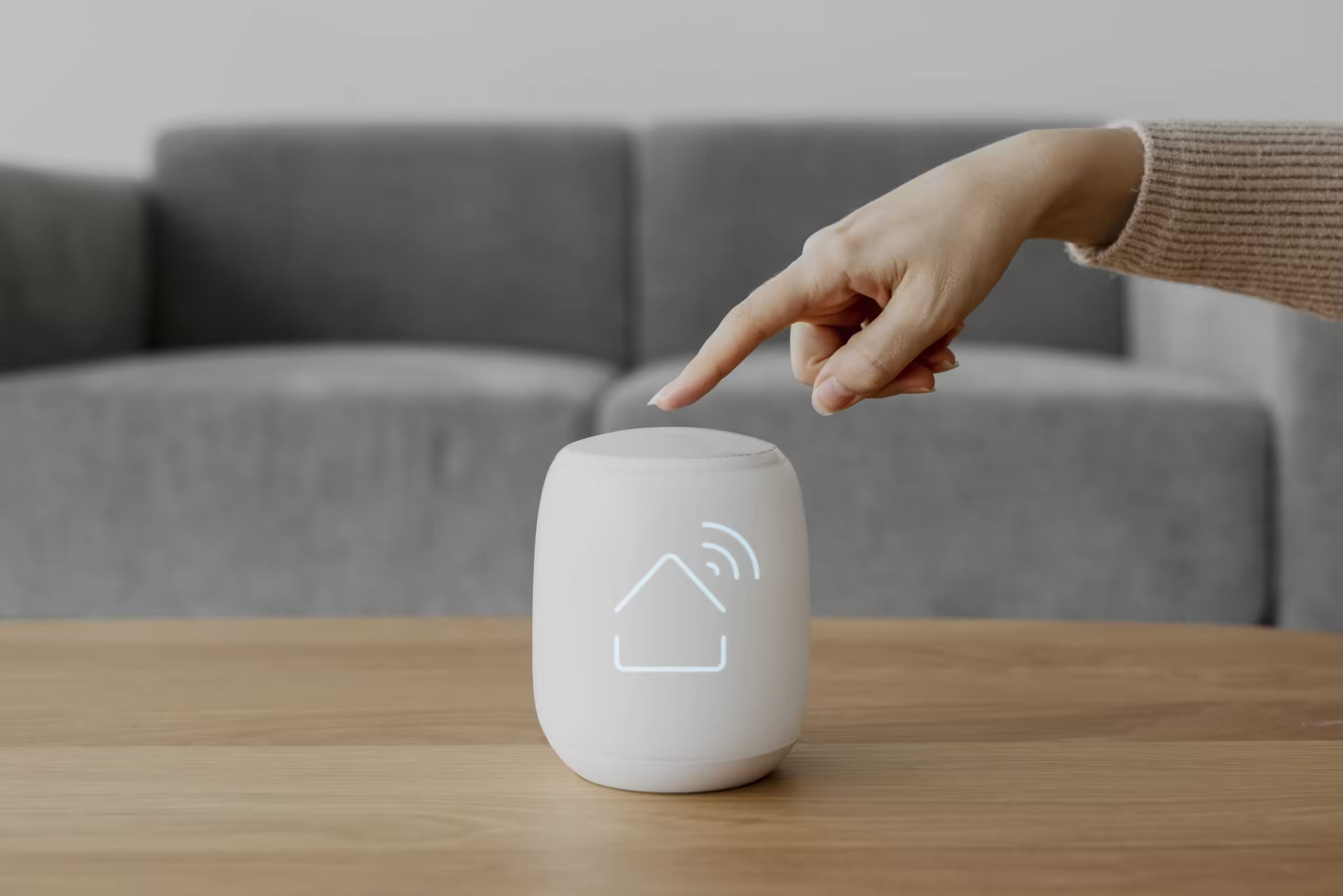Table of Contents
AI in Smart Home Devices
Artificial Intelligence (AI) has revolutionized numerous industries and is becoming an integral part of our daily lives. The integration of AI in smart home devices, including innovations from OpenAI, has transformed how we interact with technology, enhancing convenience, efficiency, and personalization. This article explores the various ways AI is embedded in everyday devices, its benefits, potential challenges, and future prospects.
Smart home devices are at the forefront of AI integration, providing users with unprecedented control and automation of their living environments. The integration of AI in smart home devices utilizes AI to learn user preferences, automate tasks, and enhance security.
Smart Speakers and Personal Assistants
Smart speakers, such as Amazon Echo and Google Home, are among the most popular AI-powered devices in households. These devices feature AI-driven personal assistants like Alexa and Google Assistant, which can perform a wide range of tasks, from setting reminders to controlling other smart home devices.
Key Features:
- Voice Recognition: AI enables these devices to understand and respond to voice commands accurately.
- Personalization: Over time, these assistants learn user preferences and offer personalized responses and recommendations.
- Integration: They can connect with various smart home devices, enabling users to control lights, thermostats, and security systems through voice commands.
Smart Thermostats
Smart thermostats, such as Nest and Ecobee, utilize AI to optimize home heating and cooling. These devices learn from user behaviors and adjust temperatures accordingly to enhance comfort and energy efficiency.
Key Features:
- Learning Algorithms: AI helps these thermostats learn user schedules and preferences to adjust temperatures automatically.
- Energy Savings: By optimizing heating and cooling, smart thermostats can significantly reduce energy consumption and lower utility bills.
- Remote Control: Users can control their thermostats remotely through smartphone apps, providing flexibility and convenience.
Smart Security Systems
AI has significantly improved home security systems, making them more effective and user-friendly. AI-driven security cameras, alarms, and doorbells provide enhanced monitoring and protection.
Key Features:
- Facial Recognition: AI-powered cameras can recognize familiar faces and alert homeowners to the presence of strangers.
- Motion Detection: Advanced motion detection algorithms reduce false alarms by distinguishing between humans, animals, and inanimate objects.
- Automated Alerts: Users receive real-time alerts and notifications on their smartphones, allowing them to respond promptly to potential security threats.
AI in Wearable Technology
Wearable technology, such as smartwatches and fitness trackers, has also benefited from AI integration. These devices provide users with valuable insights into their health and fitness, promoting a healthier lifestyle.
Smartwatches
Smartwatches, like the Apple Watch and Samsung Galaxy Watch, are equipped with AI features that enhance their functionality and user experience.
Key Features:
- Health Monitoring: AI algorithms analyze data from sensors to monitor heart rate, sleep patterns, and physical activity.
- Personalized Coaching: Based on the collected data, smartwatches offer personalized fitness recommendations and coaching.
- Emergency Assistance: In case of irregular heart rates or falls, smartwatches can alert emergency contacts and services.
Fitness Trackers
Fitness trackers, such as Fitbit and Garmin, leverage AI to provide detailed fitness metrics and insights.
Key Features:
- Activity Recognition: AI can accurately identify different types of physical activities, such as walking, running, and cycling.
- Progress Tracking: Users receive detailed reports on their fitness progress, helping them stay motivated and achieve their goals.
- Sleep Analysis: AI analyzes sleep patterns to provide insights into sleep quality and recommendations for improvement.
AI in Home Appliances
AI is making home appliances smarter and more efficient, transforming everyday tasks into seamless experiences. From refrigerators to washing machines, AI is enhancing functionality and convenience.
Smart Refrigerators
Smart refrigerators, such as those from LG and Samsung, incorporate AI to optimize food storage and management.
Key Features:
- Inventory Management: AI can track the contents of the refrigerator, alerting users when items are running low or nearing expiration.
- Meal Planning: Based on the available ingredients, AI can suggest recipes and meal plans.
- Energy Efficiency: AI helps optimize cooling settings to reduce energy consumption.
Smart Washing Machines
AI-powered washing machines, like those from Whirlpool and Bosch, offer advanced features to simplify laundry tasks.
Key Features:
- Automatic Load Detection: AI can detect the size and type of the laundry load, adjusting water and detergent usage accordingly.
- Customized Wash Cycles: Based on fabric type and soil level, AI recommends the most suitable wash cycle.
- Predictive Maintenance: AI can predict potential issues and notify users when maintenance is required, preventing breakdowns.
Benefits of AI Integration
The integration of AI in everyday devices offers numerous benefits, making technology more accessible, efficient, and user-friendly.
Convenience and Efficiency
AI automates routine tasks, saving users time and effort. From adjusting home temperatures to providing personalized fitness advice, AI enhances convenience and efficiency in daily life.
Personalization
AI-powered devices learn from user interactions, offering personalized experiences and recommendations. This customization improves user satisfaction and engagement.
Energy Savings
By optimizing the performance of smart home devices and appliances, AI contributes to significant energy savings. This not only reduces utility bills but also has a positive impact on the environment.
Enhanced Security
AI-driven security systems provide advanced monitoring and alerting capabilities, enhancing the safety and security of homes.
Challenges and Considerations
Despite the numerous benefits, the integration of AI in everyday devices also presents certain challenges and considerations.
Privacy Concerns
AI devices often collect and analyze vast amounts of personal data, raising concerns about privacy and data security. It is crucial for manufacturers to implement robust security measures and for users to be aware of data privacy practices.
Dependence on Technology
Increased reliance on AI-powered devices can lead to over-dependence on technology, potentially reducing human skills and interactions. It is important to strike a balance between leveraging AI for convenience and maintaining essential skills and interactions.
Cost
AI-enabled devices can be more expensive than their traditional counterparts. While the benefits often justify the cost, it is important for consumers to consider their budget and the long-term value of these devices.
Future Prospects
The integration of AI in everyday devices is poised to grow, with advancements in technology promising even more innovative and efficient solutions.
Smarter Homes
Future smart home devices will become even more intelligent, with improved learning algorithms and greater integration. Homes will be able to anticipate user needs and preferences, offering an unprecedented level of automation and personalization.
Healthcare Innovations
Wearable technology and AI-powered health monitoring devices will continue to evolve, providing more accurate and comprehensive health insights. This will enable proactive health management and early detection of potential health issues.
Sustainable Living
AI will play a significant role in promoting sustainable living by optimizing energy usage and resource management. Smart appliances and home systems will contribute to a more eco-friendly lifestyle.
The integration of AI in smart home devices is poised to grow, with advancements in technology promising even more innovative and efficient solutions. AI will play a significant role in promoting sustainable living by optimizing energy usage and resource management. Smart appliances and home systems will contribute to a more eco-friendly lifestyle.
The integration of AI in everyday devices, particularly AI in smart home devices, has transformed the way we live, offering enhanced convenience, efficiency, and personalization. From smart home devices and wearables to home appliances, AI is making technology more accessible and user-friendly. While there are challenges to consider, the future of AI in everyday devices holds immense potential, promising even smarter and more innovative solutions that will continue to improve our daily lives.






